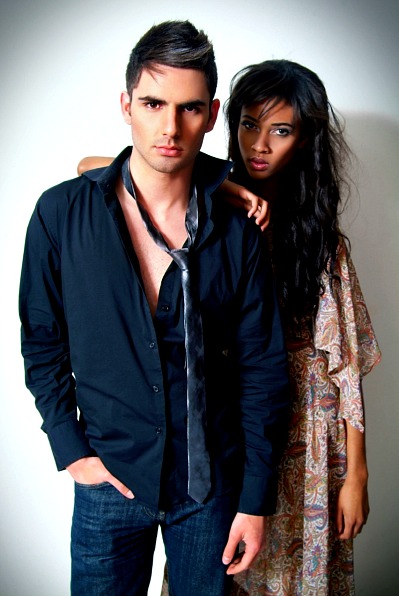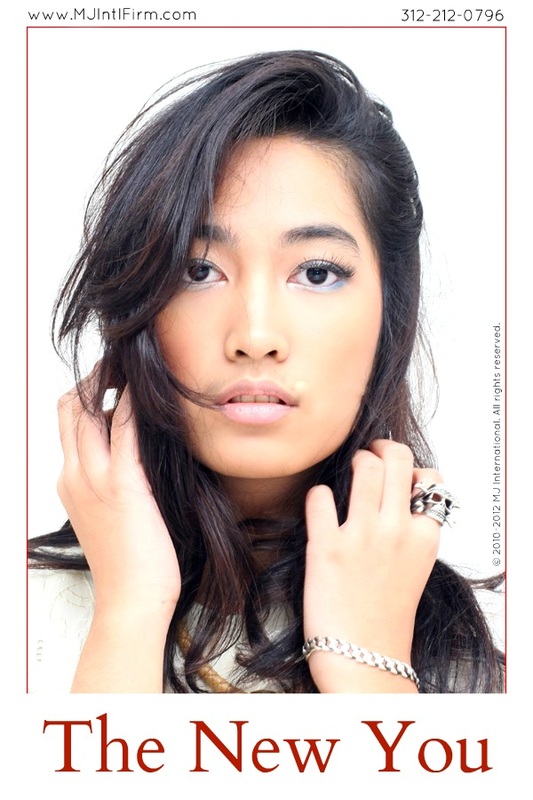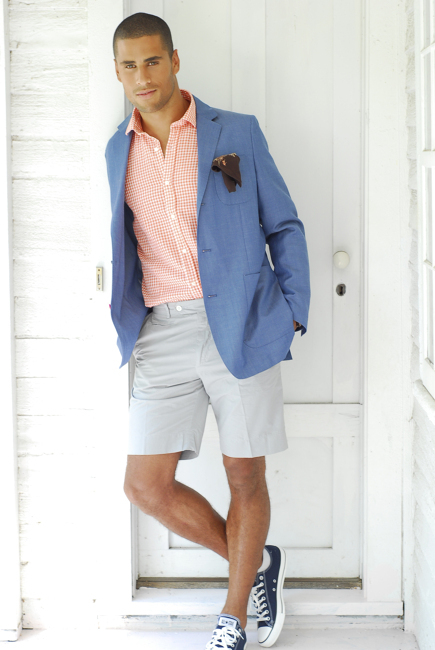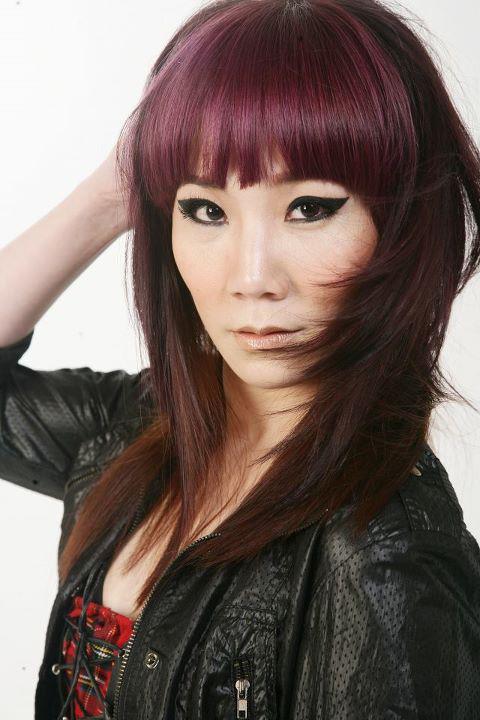By Chuck del Valle | Lifestyle and Society Contributor
For many people, dating outside one's race is hardly an issue. However, for a handful of individuals interracial dating is still considered wrong and many are passionately opposed.
Amy Yee, a screenplay writer based in San Francisco, made note that many of her friends, who come from diverse backgrounds, see interracial dating as a challenge to their well-being.
“I have about three Asian friends who date outside of their race," she said. “But all the other friends of mine, it’s either they vocally say that they won’t or every time an opportunity comes up for them to date outside of their race, there’s some excuse why it’s not going to work." Yee, who is currently dating a Turkish-American from New York City, feels very passionate about discussing the issue of race and love. "Many of my friends will say things like, ‘Well, you know he works at such and such, and our schedules don’t match.’ But we’ll know really what it is. It’s because he/she is black, white, Latino, Arab, etc.”
In today’s ever-diversifying world, it would make sense for more people to begin dating outside of their race. It turns out, however, that there’s still a tinge of racism within even the new melting-pot mentality.
According to a 2012 piece from NPR, almost 7.2 percent of all marriages in the United States are now interracial. However, not all interracial relationships are created equally:
As of 2012, just 0.3 percent of white men in marriages were married to black women, and just 0.8 percent of white women in marriages were married to Black men. By contrast, 2.1 percent of white men in marriages were married to Asian or American Indian women, and 1.4 percent of married white women had an Asian or American Indian spouse. That meant that last year, white Americans were in marriages with Asians far more often than with Blacks, even though the number of married African-Americans outnumbered Asians by more than 2 million people.
When compared to the number of Latinos dating Asian/Asian-Americans, the numbers were a bit vague, but a strong 1.2 percent existed between Latin men and Asian women. The most common Asian-American group to date outside of their race was Filipino while the least likely groups to date outside of their background included Pakistani and Korean-Americans. In a survey carried-out by the Pew Center in 2012, men were 67% likely to not date a black woman compared to women of other races. The most popular women to date, according to the 72,672 male participants, were Latin and white women.
It’s a fact that Americans are still not dating outside of their race, despite the overwhelming 74% of the nation that approves of such. In addition, the NPR survey concluded that immigration and citizenship status also affect a race-based mindset, particularly as it relates to Asian women. That being said, the survey stated that whites are less open to the idea of marrying a black person than vice versa, Latinos are more likely to have an open-mind to date outside their race, and Asians prefer to marry other Asians or marry white-men, particularly as it relates to citizenship and visa status.
"I believe that the reason Asian-American women are not valued in society is due to the misconception that we want a visa in exchange for partnership," Yee stated. "The infamous 'visa for love' is quite common between Asian women and white men the world over, but it's a hurtful stereotype because many of us aren't looking for a visa."
Josh O'Shea, an accountant based in Chicago, mentioned that racism isn't something he's consciously developed in a relationship. "I'm as white-bread as you can get," O'Shea laughed. "But I know that I am open to learning about other people, other cultures, and how life affects the woman I love." Josh, a native of Evergreen Park on Chicago's south-side, knows that racism is a common way of life for many Chicagoans, particularly those hailing from working-class neighborhoods. "I got harassed so much for dating a black girl in college: we used to get called the foulest names," O'Shea stated. "When I dated an Asian girl last year, they asked if I was ready to sponsor her family and get the paper-work rolling: they were dead serious."
Despite the fact that it is 2013, racial barriers are still a major factor in people’s lives. Like Amy and Josh's experiences, the experiences that come with interracial dating reflect more than the moment someone makes a nasty remark.
"It's only the beginning of a long, overdone conversation," Yee commented. "I wish it were as simple as saying that one individual is playing ignorant, but the reality is that society doesn't embrace interracial dating, not just yet. As someone living in San Francisco, interracial dating is a bit more tolerable on this end, but I would never move to Kentucky or consider the Midwest a place to raise bi-racial children."
Old prejudices die hard, even where love is concerned.
For many people, dating outside one's race is hardly an issue. However, for a handful of individuals interracial dating is still considered wrong and many are passionately opposed.
Amy Yee, a screenplay writer based in San Francisco, made note that many of her friends, who come from diverse backgrounds, see interracial dating as a challenge to their well-being.
“I have about three Asian friends who date outside of their race," she said. “But all the other friends of mine, it’s either they vocally say that they won’t or every time an opportunity comes up for them to date outside of their race, there’s some excuse why it’s not going to work." Yee, who is currently dating a Turkish-American from New York City, feels very passionate about discussing the issue of race and love. "Many of my friends will say things like, ‘Well, you know he works at such and such, and our schedules don’t match.’ But we’ll know really what it is. It’s because he/she is black, white, Latino, Arab, etc.”
In today’s ever-diversifying world, it would make sense for more people to begin dating outside of their race. It turns out, however, that there’s still a tinge of racism within even the new melting-pot mentality.
According to a 2012 piece from NPR, almost 7.2 percent of all marriages in the United States are now interracial. However, not all interracial relationships are created equally:
As of 2012, just 0.3 percent of white men in marriages were married to black women, and just 0.8 percent of white women in marriages were married to Black men. By contrast, 2.1 percent of white men in marriages were married to Asian or American Indian women, and 1.4 percent of married white women had an Asian or American Indian spouse. That meant that last year, white Americans were in marriages with Asians far more often than with Blacks, even though the number of married African-Americans outnumbered Asians by more than 2 million people.
When compared to the number of Latinos dating Asian/Asian-Americans, the numbers were a bit vague, but a strong 1.2 percent existed between Latin men and Asian women. The most common Asian-American group to date outside of their race was Filipino while the least likely groups to date outside of their background included Pakistani and Korean-Americans. In a survey carried-out by the Pew Center in 2012, men were 67% likely to not date a black woman compared to women of other races. The most popular women to date, according to the 72,672 male participants, were Latin and white women.
It’s a fact that Americans are still not dating outside of their race, despite the overwhelming 74% of the nation that approves of such. In addition, the NPR survey concluded that immigration and citizenship status also affect a race-based mindset, particularly as it relates to Asian women. That being said, the survey stated that whites are less open to the idea of marrying a black person than vice versa, Latinos are more likely to have an open-mind to date outside their race, and Asians prefer to marry other Asians or marry white-men, particularly as it relates to citizenship and visa status.
"I believe that the reason Asian-American women are not valued in society is due to the misconception that we want a visa in exchange for partnership," Yee stated. "The infamous 'visa for love' is quite common between Asian women and white men the world over, but it's a hurtful stereotype because many of us aren't looking for a visa."
Josh O'Shea, an accountant based in Chicago, mentioned that racism isn't something he's consciously developed in a relationship. "I'm as white-bread as you can get," O'Shea laughed. "But I know that I am open to learning about other people, other cultures, and how life affects the woman I love." Josh, a native of Evergreen Park on Chicago's south-side, knows that racism is a common way of life for many Chicagoans, particularly those hailing from working-class neighborhoods. "I got harassed so much for dating a black girl in college: we used to get called the foulest names," O'Shea stated. "When I dated an Asian girl last year, they asked if I was ready to sponsor her family and get the paper-work rolling: they were dead serious."
Despite the fact that it is 2013, racial barriers are still a major factor in people’s lives. Like Amy and Josh's experiences, the experiences that come with interracial dating reflect more than the moment someone makes a nasty remark.
"It's only the beginning of a long, overdone conversation," Yee commented. "I wish it were as simple as saying that one individual is playing ignorant, but the reality is that society doesn't embrace interracial dating, not just yet. As someone living in San Francisco, interracial dating is a bit more tolerable on this end, but I would never move to Kentucky or consider the Midwest a place to raise bi-racial children."
Old prejudices die hard, even where love is concerned.


 RSS Feed
RSS Feed




